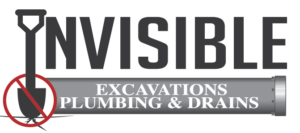Unexpected water or sewage in your basement could mean the loss of more than just dollars to replace walls, floors and carpeting, it could also mean the loss of furniture and other valuables being stored there. Therefore, it’s best to do all you can to prevent basement flooding in the first place. But, if it does catch you off guard, we highly recommend calling in experts to determine if the problem is likely to recur again, or if it was a one-time event.
To determine how to fix a recurring problem, it is imperative that you know exactly where the water is coming from, especially if you’re not in a scenario where there is apparent flooding around your home and neighborhood. The solutions will be different depending on whether the water is seeping from the ground into your basement or coming from the basement floor drains.
Possibilities from the ground include:
- Surface water, or water that collects on the surface of the ground, is running down your foundation walls as a result of overflowing gutters and downspouts, or improper land slopes
- Groundwater is being pushed into your basement by hydrostatic pressure, or water seeping through hairline cracks in the foundation
Possibilities for basement drain flooding or sewage backup in basement include:
- Municipal storm water is backing up into your home’s foundation drain
- Municipal sanitary sewer system is backing up into your home’s foundation drain
- Clogged sewer lines are causing back up in your home’s drain system
During heavy rains, the municipal systems can become overwhelmed with water, causing water to flow backwards to your house. If it hasn’t been heavily raining, then the problem may be contained within just one service line. A line could be clogged with grease, food waste, tree roots, or a collection of other objects.
Flooding as a result of problems with municipal lines is a great headache for homeowners, as it is largely out of their control. In order to keep the lines leading from the municipal system to your home free and clear, you can install backflow preventers. You can also take precautions to ensure that your individual lines remain free of grease buildup, food and waste by periodically having your drains and pipes cleaned or inspected yearly.

